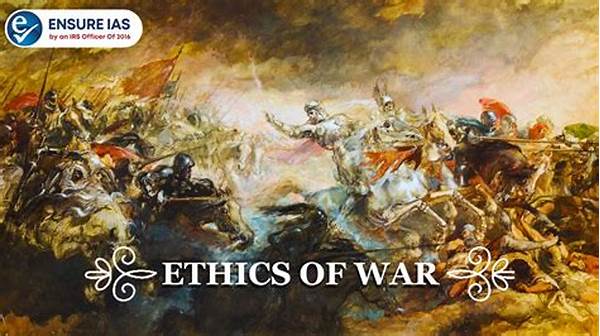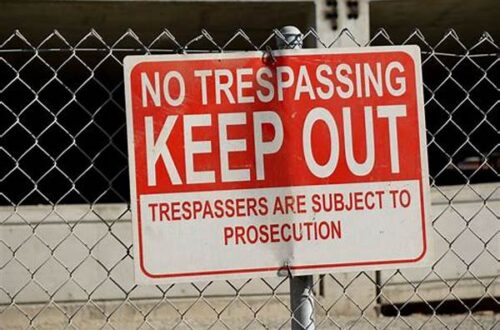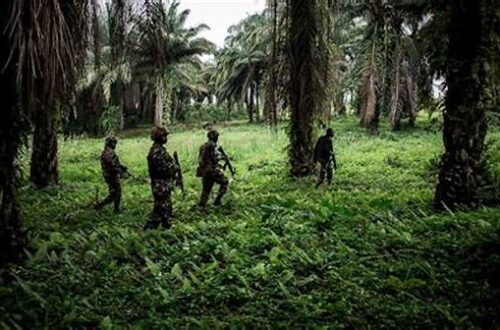Importance of Ethics in War Reporting
War reporting presents a unique set of challenges for journalists, who are tasked with conveying the realities of conflict while upholding the standards of ethical journalism. The ethics of war reporting require journalists to navigate complex moral dilemmas, including the need to provide accurate information without compromising the safety of sources or exacerbating the conflict. Balancing objectivity and empathy is essential in portraying the human impact of war, ensuring that the stories told are both truthful and respectful to those involved.
Moreover, the principles governing the ethics of war reporting demand a commitment to minimize harm. Reporters must be mindful of the potential repercussions their stories may have on the ground and strive to avoid sensationalism that could inflame tensions. Ensuring the dignity and privacy of victims and survivors is paramount, maintaining a level of sensitivity that correctly mirrors the gravity of the situation without descending into exploitative practices.
The ethics of war reporting serve as a guiding framework to uphold the integrity of journalism during conflicts. By adhering to ethical principles, journalists can provide a comprehensive narrative that informs the public while respecting the dignity of all parties involved. This commitment fosters public trust and enhances the credibility of war reporting as a crucial component of global awareness and understanding.
Principles Guiding Ethical War Reporting
The ethics of war reporting are defined by principles that ensure integrity and responsibility in journalism. These principles include:
1. Accuracy and Truth: Ensure the information disseminated is factual and unbiased.
2. Minimizing Harm: Strive to protect the vulnerable and respect human dignity.
3. Independence: Maintain autonomy from external pressures and interests.
4. Accountability: Own up to mistakes and rectify misinformation promptly.
5. Respect for Privacy: Safeguard personal details and sensitive information of those affected by conflict.
Challenges in Upholding War Reporting Ethics
The ethics of war reporting are inherently complex, given the myriad challenges journalists face in conflict zones. The rapidly changing and often volatile nature of war makes the collection and verification of information arduous, placing significant strain on journalists to remain detached and unbiased. These conditions demand rigorous adherence to ethical standards to ensure responsible reporting.
Furthermore, war reporters often work under extreme conditions, facing threats to their safety while attempting to maintain journalistic integrity. The harsh realities of the battlefield may compromise the ability to report objectively, necessitating a steadfast commitment to ethical practices. This commitment is crucial in providing audiences with transparent and honest reporting that accurately reflects the conflicts’ gravity and nuances. Journalists must remain vigilant, considering the potential consequences their work might have on ongoing conflicts and those entrapped within them.
Implementing Ethical Practices in War Reporting
Implementing the ethics of war reporting requires consistency and diligence. These practices include:
1. Engaging with Reliable Sources: Prioritize credible sources to ensure factual accuracy.
2. Contextualizing Events: Offer context to prevent misinterpretation and provide clearer understanding.
3. Avoiding Bias: Strive to maintain objectivity and impartiality in reports.
4. Ensuring Transparency: Be open about the limitations and methodologies of reporting.
5. Prioritizing Safety: Safeguard not only the journalists but also the subjects in hostile environments.
6. Collaboration for Accuracy: Work with local journalists and experts familiar with the region.
7. Ethical Decision-Making: Evaluate ethical dilemmas meticulously to make informed choices.
8. Respecting Cultural Sensitivities: Stay considerate of local customs and traditions.
9. Evaluating Impact: Assess the potential effects each report may have on conflict dynamics.
10. Continuous Education and Training: Engage in ongoing learning about ethical standards and practices.
The Role of Media Organizations
Media organizations play a significant role in upholding the ethics of war reporting. They have the responsibility to provide training and resources, enabling journalists to operate ethically in conflict areas. Implementing stringent editorial guidelines ensures that reports meet high ethical standards, balancing the imperative of public interest against potential harm.
Media entities must also provide psychological support and counseling services to their journalists, acknowledging the emotional and psychological toll of covering war. Upholding ethical reporting practices contributes to the sustainability of journalism, ensuring that audiences receive informed and insightful perspectives on global conflicts.
Ethical War Reporting in a Digital Age
In the digital age, the ethics of war reporting are more crucial than ever. The rapid dissemination of information through digital platforms presents both opportunities and challenges for journalists. While digital tools can aid in real-time reporting, they also require strong ethical oversight to prevent misinformation and sensationalism, ensuring that content remains factual and responsible.
The vast reach of digital media underscores the necessity for accurate and ethical reporting, as misinformation can exacerbate conflicts and spread rapidly. This demands an unwavering commitment to the ethics of war reporting, ensuring that journalistic integrity prevails in the digital arena. Journalists must be adept at navigating the complexities of digital media while remaining faithful to the principles of ethical reporting.
Summary of the Ethics of War Reporting
The ethics of war reporting are integral to maintaining journalistic credibility and serving the public interest. As conflicts continue to shape global landscapes, journalists have the duty to report with integrity, offering a balanced and nuanced portrayal of events. By adhering to ethical principles, they can inform and engage audiences responsibly, fostering a deeper understanding of the complexities and consequences of war.
Moreover, journalists must continuously evaluate the potential impacts their reporting might have, both on those directly affected by conflicts and the global audience. Upholding the ethics of war reporting is not merely about following a set of guidelines; it is about preserving the fundamental tenets of journalism, which include truthfulness, impartiality, and responsibility. This ethical commitment ensures that war reporting remains a vital component of informed public discourse, highlighting the human stories behind the headlines and advocating for a more empathetic and informed society.





